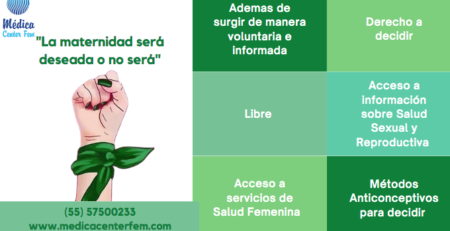Reproductive health
Reproductive health refers to a state of total physical, mental and social well-being. It is not just about not suffering from any type of sexually transmitted disease or experiencing discomfort in relation to the reproductive system, its functions and processes. This term encompasses the ability of an individual to fully enjoy their sexual life without experiencing any of the possible risks such as procreation, without infections and with the ability to decide in any type of situation whether they want to do it or not, when to do it, with whom to do it and how often.
Reproductive health is a concept that was developed in the late 1980s, but it did not gain the desired acceptance. Despite this, today it is a plan that has been adopted by more than 150 countries around the world, and governments have set themselves the goal of ensuring that access to quality services, including family planning and sexual health , is universal.

What is the purpose of reproductive health ?
The reproductive health program aims to achieve the following:
- That access to family planning , free choice, information, education on this topic and support to achieve it is within everyone’s reach.
- To assure women that they can enjoy a life of motherhood without risks or complications due to the care they received before, during and after pregnancy.
- Reduce the infant mortality rate.
- Prevention and treatment of sexually transmitted diseases , including the human immunodeficiency virus (HIV/AIDS)
- Eliminate the practice of female genital mutilation.
There are also other issues that are part of reproductive health, which are closely related, such as prevention and treatments to treat any type of disease of the reproductive system, as well as the fight against sexual violence.

Plataformas digitales & Salud Reproductiva
El impacto de las plataformas digitales en la información sobre salud sexual y reproductiva En la actualidad, internet y las...
Aborto en Guerrero
Congreso de Guerrero aprueba la despenalización del aborto para que las mujeres del estado logren tener acceso a servicios de...
La maternidad deseada
Maternidad Deseada : ''La maternidad será deseada o no será'' . Decidir si quieres ser madre o no es una decisión tuya,...
